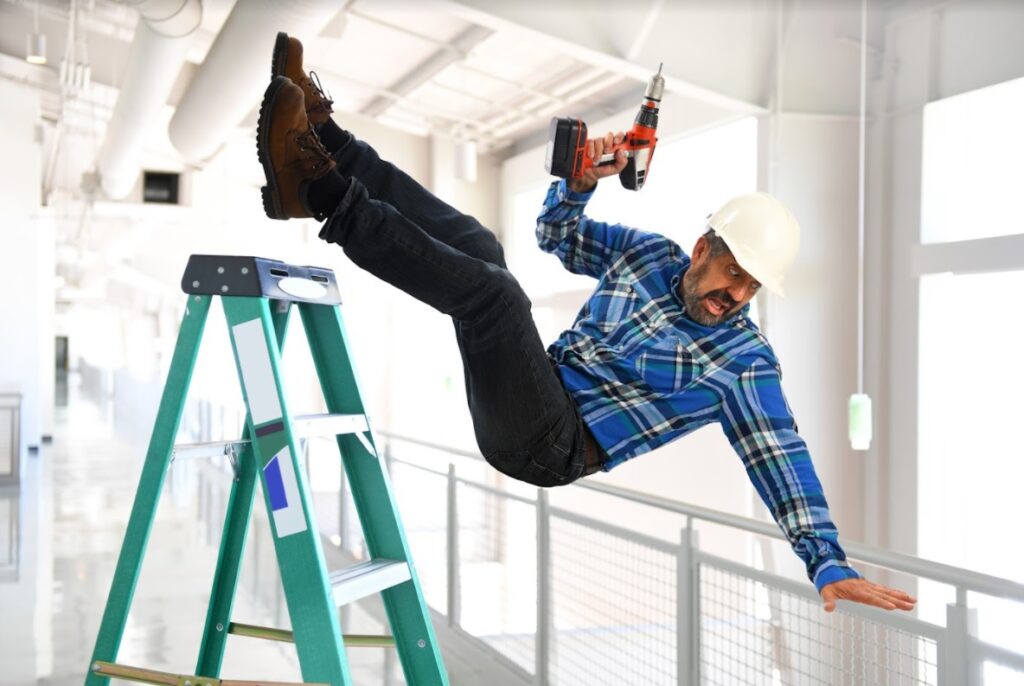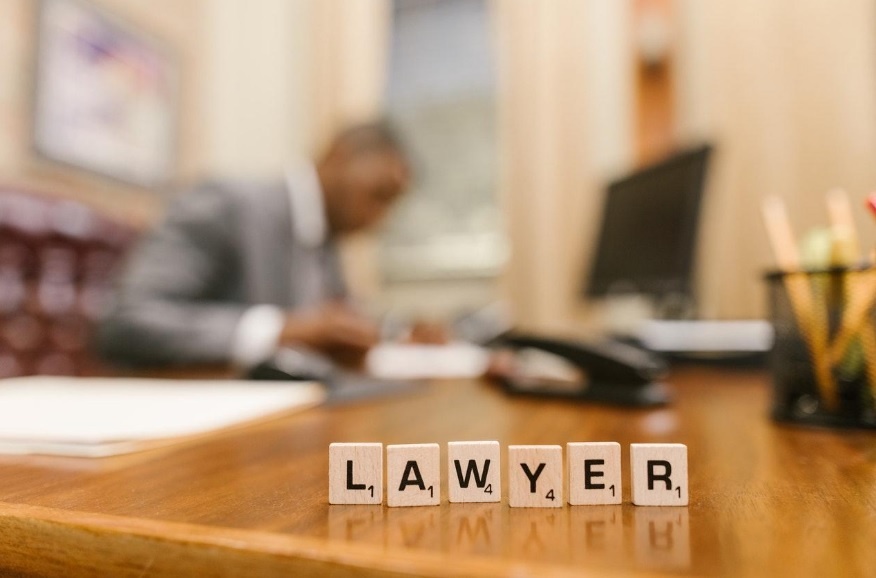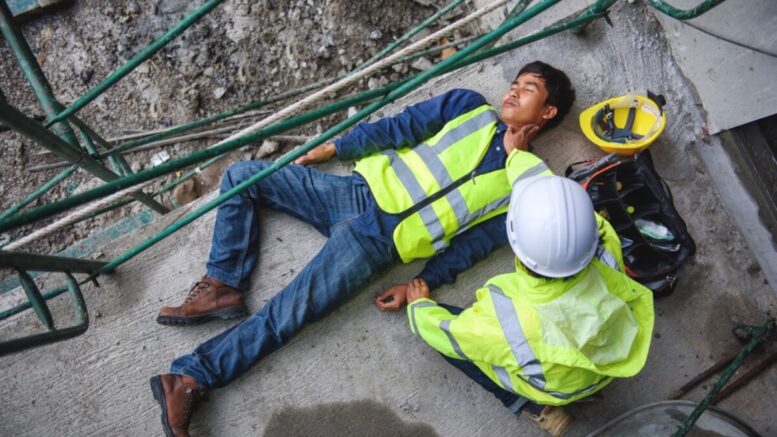If the trip was caused by an issue on the pavement, then you do need to be able to provide evidence that the trip hazard was at least 1 inch higher or lower than the rest of the surface area. So this might be a raised paving slab or a drain cover that’s dropped below the one-inch point.
If the height difference is less than one inch, then it’s unlikely that a compensation claim will be successful.
So, now that you understand the criteria for the trip hazard height let’s look in more detail as to whether you might have a compensation claim.
What Type of Injuries Might A Trip Hazard Cause?
When a person falls, they can sustain all sorts of injuries. The most common ones we see are head injuries, arm and wrist fractures, and hip fractures. Broken bones are not the only possible injuries that can result from a fall, however.
Victims might also suffer from soft tissue damage, bruising, or even lacerations. In some cases, people might hit their heads on the ground so hard that they suffer from concussions or other brain injuries.
What Proof Is Needed to Make a Trip Hazard Claim?
Depending on where the accident happened, you might be claiming from a local authority, a store, or your employer. Whoever that is, you will need to show that they were negligent in their duty to you as a pedestrian.
It’s not always straightforward to make a claim, especially when dealing with the accident’s impact. This is when companies such as claimsaction.co.uk and a no win no fee agreement can make the process as easy and stress-free as possible.

First of all, report your accident
No matter where the trip took place, the details should be entered in the accident report book. Ensure that you get a copy of the incident form to ensure that no one can deny that the accident happened at a future date.
Medical assessment
You then need to visit an accident and emergency department or a minor injuries unit, depending on the severity of the injuries. It’s important to acknowledge that only medical professionals can diagnose, and having medical reports and, where appropriate, x-rays will be essential evidence in making a claim for compensation.
Take Photos
Before leaving the accident scene, take as many photos as possible from different angles. Try to get this done before anything is moved or changed.
Get copies of the CCTV recording
If there is a CCTV in the area, then you are legally entitled to ask for a copy of the camera footage that includes you within the recording. It’s essential to get this request in quickly before any of the footage is deleted.
Speak to witnesses
If anybody was passing and they saw the trip or fall, do ask them if they would share their contact details with you. It may be that the solicitor handling your claim will contact them to provide a statement of what they saw.
Keep records
With the stress of the accident and dealing with injuries, it can be challenging to remember everything that happened and all the expenses incurred. Keeping a written record of everything is the best way to make sure that nothing gets missed. Don’t forget to include all the costs incurred, such as taxis when you couldn’t drive.
Taking photos of the injuries through the recovery period is also helpful to substantiate your claim.
How Long Does Someone Have to Make a Claim?
In the UK, you have three years in which to start a claim, starting from the date of the accident. Now, that may sound like a long time, but the quicker you get legal advice and have a professional acting on your behalf, the better. This makes it much easier for them to speak to witnesses and gather the relevant paperwork.

How Much Compensation Is Payable?
Because every accident is different, there is no fixed amount payable for injuries from a trip hazard accident. Instead, your legal team will look at both general damages and special damages.
General damages
General damages compensate for the pain, suffering, and detrimental effect on quality-of-life caused by the accident.
Special damages
Special damages can relate to both past and future losses. Past losses relate to any compensation paid for upfront expenses. Future losses consider compensation for the loss of earnings in the future, earnings potential, and future care.
What does compensation cover?
You could be entitled to compensation for:
- The pain and suffering experienced after the fall
- The impact that the injuries have had on your social life and hobbies
- Any loss of income because of your injuries
- Time and costs when a carer was needed to help during your recovery
- Replacing any personal property that was damaged in the accident
- Travel expenses to medical appointments or taxis if unable to drive
- Any costs relating to medical or rehabilitation care
- Expenses relating to home modifications needed because of long-term injuries
- Loss of earnings both present and future because of the impact of the injuries
Do I Need Legal Representation?
It is not essential to have legal representation, but it can make the claims process much more straightforward. Many people choose to use a solicitor as they will likely have experience in these cases and will be able to give you the best chance of receiving the maximum level of compensation.
